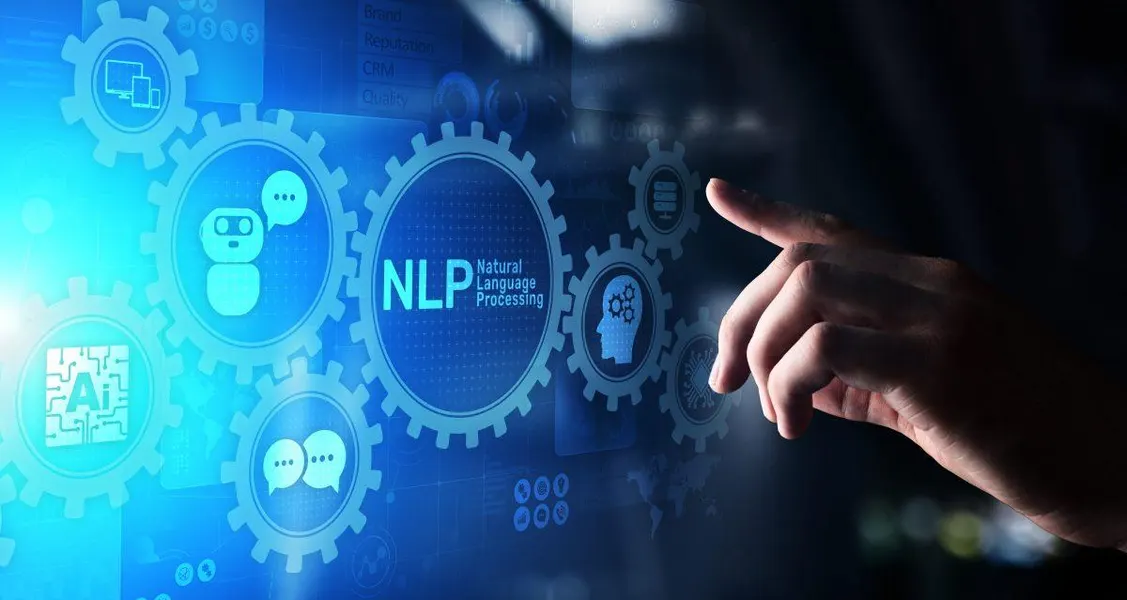Natural Language Processing (NLP) - Simplifying Language For Technology
Explore the world of natural language processing (NLP), a cutting-edge field that enables machines to understand and interpret human language. Discover its applications, benefits, and the latest advancements in NLP technology. Learn how natural language processing is transforming communication, AI, and data analysis in various industries.

Jul 01, 2024
Natural Language Processing(NLP) is a branch of artificial intelligence (AI) that focuses on enabling computers to understand, interpret, and generate human language in a way that is both meaningful and useful. It plays a crucial role in various applications across technology, from chatbots to language translation and sentiment analysis.
What Is Natural Language Processing?
NLP involves programming computers to process and analyze large amounts of natural language data. This allows machines to comprehend human speech and text, enabling them to perform tasks that require understanding and generating human language.
Applications Of NLP
- Chatbots and Virtual Assistants: NLP powers chatbots like Siri and Alexa, allowing them to understand and respond to natural language queries.
- Language Translation: Services like Google Translate use NLP algorithms to translate text between languages accurately.
- Sentiment Analysis: NLP analyzes text to determine sentiment, helping businesses gauge customer opinions and feedback.
How Natural Language Processing Works
Key Techniques
- Tokenization: Breaking down text into smaller units (tokens) such as words or phrases.
- Part-of-Speech Tagging: Identifying the grammatical parts of words (nouns, verbs, etc.) in a sentence.
- Named Entity Recognition: Identifying names of people, places, organizations, etc., in text.
Challenges In NLP
- Ambiguity: Words and phrases can have multiple meanings depending on context.
- Context Understanding: Understanding the context of a sentence or conversation requires complex algorithms.
- Language Variations: NLP must handle variations in language, slang, and dialects.
Advancements In Natural Language Processing
Machine Learning And Deep Learning
- Machine Learning: Algorithms learn from data to improve accuracy in language tasks.
- Deep Learning: Neural networks process vast amounts of data to mimic human language understanding.
Practical Applications
- Healthcare: Analyzing medical records and patient data to assist in diagnostics and treatment recommendations.
- Finance: Analyzing financial reports and market sentiment to predict trends and make investment decisions.
- Education: Personalizing learning experiences through automated tutoring systems and language learning apps.
Future Trends In NLP
Emerging Technologies
- Conversational AI: Advancements in chatbot technology for more natural and interactive conversations.
- Multilingual NLP: Improving translation accuracy and linguistic diversity in global applications.
- Ethical Considerations: Addressing biases in NLP algorithms and ensuring fairness and transparency.
Conclusion
Natural Language Processing (NLP) stands at the forefront of technological innovation, revolutionizing how computers understand and interact with human language. As NLP continues to advance through machine learning and deep learning techniques, it promises to enhance numerous sectors, from healthcare to finance and education.
Embracing NLP's capabilities ensures a future where technology seamlessly integrates with human communication, paving the way for more efficient and personalized interactions across diverse applications.
FAQs
What are some real-world applications of NLP beyond virtual assistants?NLP is used in language translation services such as Google Translate, sentiment analysis for understanding customer feedback, and in healthcare for analyzing medical records and assisting in diagnostics.
How does NLP handle different languages and dialects?NLP algorithms are designed to accommodate variations in language, dialects, and slang through extensive data training and pattern recognition, ensuring accurate processing across diverse linguistic contexts.
What are the ethical considerations in NLP development?Ethical concerns in NLP include addressing biases in algorithms, ensuring data privacy, and maintaining transparency in how language data is processed and used, especially in sensitive applications like healthcare and finance.
What role does deep learning play in advancing NLP capabilities?Deep learning techniques, such as neural networks, empower NLP systems to learn from vast amounts of data and improve accuracy in tasks like language translation, sentiment analysis, and context understanding.